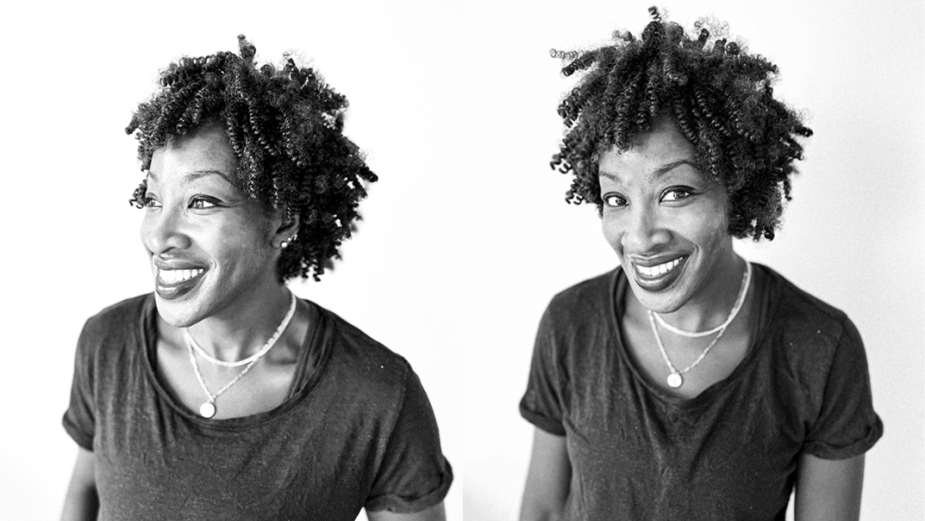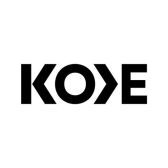
The Directors: Meena Ayittey

Meena Ayittey is an award winning film director. From and based in London, her fascination with stories and human nature started from an early age. Through writing stories and making films she has developed a passion for emotional storytelling and a champion for voices who often go unheard. It is this passion that has been a driving force in her work. She draws inspiration from a broad range of subject matters including music, art, her own experiences as a Black woman as well as issues faced by the Black community.
Her Black Lives Matter film 'Mama' won gold at the 1.4 awards and was a finalist at Ciclope.
Alongside being shortlisted for the 2022 YDA's, Meena's work is often found on the awards circuit. Her award winning documentary 'Black Creative' which looks at what it is like to be Black in the UK advertising industry has been extensively screened worldwide and has been included in festivals such as the 'Toronto Film Festival and the 'Independent Film awards'. Her short film 'All the Little Things' was named the most watched film of 2021 on industry website Shots.net.
With a background in VFX she has also collaborated with the likes of Saatchi & Saatchi, Droga5, Grey, Ogilvy and Oliver and has worked with clients including GSK, Puma, Olay and Panasonic.
An avid screenwriter, Meena also has several long form projects in development including her first feature film. She also loves cats.
Name: Meena Ayittey
Location: London, UK
Repped by/in: KODE
Awards: Webby Award, 1.4 award, Ciclope finalist ‘Mama’
LBB> What elements of a script sets one apart from the other and what sort of scripts get you excited to shoot them?
Meena> A script that has a very clear goal but invites the director.
LBB> How do you approach creating a treatment for a spot?
Meena> I will always start by making sure that I am answering the brief, which often means cross checking each stage of the treatment with the original brief which can help if (when) you go off track. Then secondly I would dive right into research; the brand, what does it stand for, what have they done in the past, who they are trying to engage with. So much will happen when a brand tells you exact what they don’t want. From there I try to express myself as visually as possible
LBB> For you, what is the most important working relationship for a director to have with another person in making an ad? And why?
Meena> I would say the relationship that a director has with a DOP is one that is particularly special. As a director so much trust goes into your DOP making sure that your vision comes alive and is as close as possible to what you want. A lot of work goes into forming that trust.
LBB> What type of work are you most passionate about - is there a particular genre or subject matter or style you are most drawn to?
Meena> I love natural, emotional, character-led stories. Performances that almost stay with you after the ad or film has ended. I loved ‘Penny- The wish’ by Marcus Ibanez. It’s so powerful and is one I can watch over and over. Likewise with ‘Volvo - Family Bond’ by Gustav Johansson. When you watch something that feels so natural it almost feels like you’re not even watching an ad is something incredible to me. Making something feel natural and effortless is not always easy and these sorts of films really resonate with me.
LBB> What misconception about you or your work do you most often encounter and why is it wrong?
Meena> I think that if you happen to be a Black female and explore issues of race in your work, you can be pigeonholed as a director. I am hugely passionate about racial and gender equality. I draw a lot from my own experiences. I also love dark, twisted comedy and I would love the chance to direct something funny. I love dark psychological thrillers too and have an unhealthy addiction to true crime podcasts. Most directors develop a style and favourite themes but think we need to move away from the idea that a director can make only one ‘type’ of work.
LBB> What’s the craziest problem you’ve come across in the course of a production – and how did you solve it?
Meena> I shot a piece in South Africa a few years ago which involved filming artist Belinda Qaqamba Ka-Fassie. We did several recces to a few locations in a small township We were strongly advised against doing the recces as it was considered ‘dangerous’. Several film crews had been burgled and attacked in the very same place only a few days before. We were also advised to not under any circumstances, stay in the township after 6pm. We took our chances! On one recce we lost track of time. It got dark and roughly after 6pm we found that taxis were no longer taking passengers out of the township. No one would pick us up. We were effectively stranded. Eventually, after some time, we made friends with some locals (who turned out to be incredibly friendly despite the ‘dangerous’ reputation) we eventually persuaded a driver to take us all the way home. Was it a risky thing to do before a shoot? Perhaps. Was it worth doing? Absolutely!
LBB> How do you strike the balance between being open/collaborative with the agency and brand client while also protecting the idea?
Meena> I always try and work with the agency and the brand in tandem. It’s such a delicate balance to juggle and so communication with both is essential. The magic happens when the idea, the agency and the brand are in sync with what will work best and also leave you a little creative freedom for you to add some of your own ideas. It’s not always easy and so again, constant communication is essential.
LBB> What are your thoughts on opening up the production world to a more diverse pool of talent? Are you open to mentoring and apprenticeships on set?
Meena> I am particularly passionate about trying to make our industry more inclusive. I think that in order to thrive and evolve the industry needs to become more inclusive. Through making my documentary Black Creative; race and the advertising industry I realised that there is no one size fits all method to making this industry more inclusive. Mentoring is great but so is opening schemes for communities that are mostly unrepresented in our industry. I didn’t know any film directors when I was growing up so it felt like quite an impossible thing to achieve. My route into directing was circuitous, I spent many years working as a VFX artist and making my own short films before finally finding representation. If I’d had the opportunity to speak to director or creative whilst I was at school, it could have made me aware of the possibilities and perhaps sped up my route into directing. The fact that I had no reference point of where I could see myself certainly had an impact on me.
LBB> How do you feel the pandemic is going to influence the way you work into the longer term? Have you picked up new habits that you feel will stick around for a long time?
Meena> I know remote working has its critics but I am definitely someone who has benefitted from it. I am far more strict with my time since I started working remotely. I embrace meetings with clients over zoom and generally able to connect with more people in this way. I prepare , research and discuss as much as I can before physically going onto set. Nothing beats a face to face meeting but being able to quickly brainstorm or share ideas via Zoom has made me more versatile as a director
LBB> Your work is now presented in so many different formats - to what extent do you keep each in mind while you're working (and, equally, to what degree is it possible to do so)?
Meena> I think a great piece of work always stands on its own legs and the format almost becomes secondary. I believe with a great piece of work you are struck by the story, the visuals or the content. Obviously watching something cropped on a smartphone is different to viewing it on the big screen but I believe a good piece transcends any limitations of a specific format. If you watch a Burberry commercial by Megaforce on your phone you will probably get that ‘wow’ feeling that you would also get if you saw the same ad on TV.
LBB> Which pieces of work do you feel really show off what you do best – and why?
Meena> Mama - A film very close to my own heart and one that I hoped would have an emotional impact on people who watch it. The combination of filmed and sourced footage just works.
And I shall rise - A film about acceptance and inclusion which was filmed in South Africa. It is very much focused on people and performances.
All The Little Things - A study of micro aggressions in the workplace which makes for uncomfortable viewing at times. I really love allowing viewers to sit with the discomfort that certain topics bring. It can force us to see a different perspective or explore subjects that we tend to shy away from because of how they make us feel.
Black Creative, Race and the Advertising Industry - This is another project where I wanted to delve into discomfort. There was no rehearsal or script so the words that your hear feel unfiltered. I love the process of creating a documentary; the building of the rapport between the director and the people who speak. It is a documentary which has a strong sense of intimacy which hopefully pulls the viewer in and keeps them watching.













